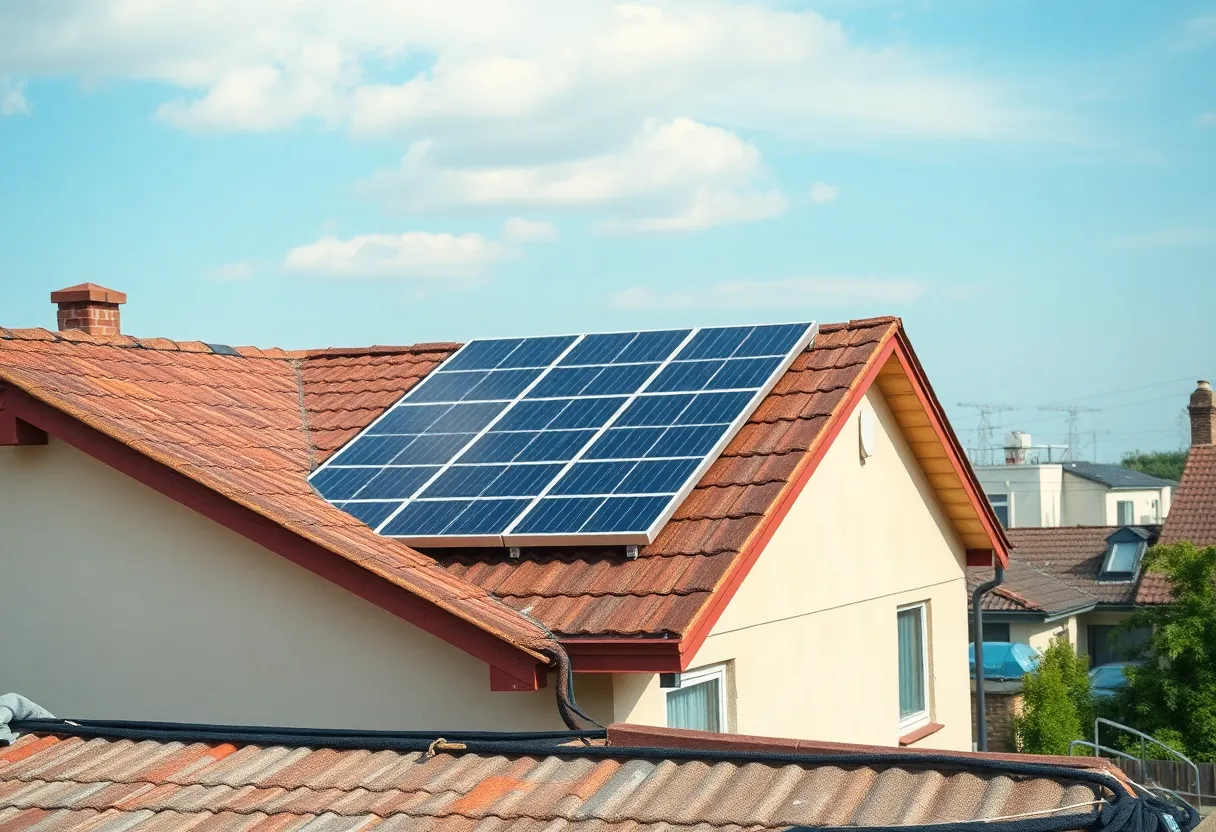News Summary
The EPA has ended its $7 billion Solar for All program, impacting the Georgia BRIGHT initiative, which aimed to provide free solar panels for low-income households. Launched shortly before the EPA announcement, the program was intended to help reduce energy costs for struggling families. Advocates, including Georgia BRIGHT founder Alicia Brown, plan to pursue legal action to restore the initiative. The EPA cited concerns over middlemen profiting from the program as a reason for its termination, raising concerns about the implications for underserved communities relying on solar energy solutions.
Atlanta, Georgia – The U.S. Environmental Protection Agency (EPA) has announced the termination of its $7 billion Solar for All program, significantly impacting the Georgia BRIGHT initiative aimed at providing free solar panels to low-income households. This decision was revealed by EPA Administrator Lee Zeldin on August 7, 2023, just days after Georgia BRIGHT launched on August 4, 2023, with nearly a thousand families registered to benefit from the program.
Georgia BRIGHT was designed to equip 400 low-income households with solar panels at no upfront, ongoing, or maintenance costs. The program is part of the broader Solar for All initiative, which was intended to enhance solar access among underserved populations. The incorporation of solar panels would have allowed participating households to expect a 50 to 70% reduction in their energy bills, along with increased resilience against power outages.
However, the recent decision to terminate Solar for All has raised significant concerns among advocates and stakeholders. Alicia Brown, the founder of Georgia BRIGHT, expressed confidence in the funding for the initiative, which she claimed had been secured since December 2024. In light of the EPA’s announcement, she stated that Georgia BRIGHT plans to pursue legal action to restore the program, underlining its vital importance to local families and businesses struggling with energy costs.
The EPA cited challenges regarding “middlemen” as a primary reason for ending the Solar for All program. Zeldin indicated that the presence of multiple entities profiting from the initiative, which included pass-through entities that could involve up to four separate organizations, raised serious concerns. Nevertheless, details supporting these claims were not provided, despite multiple requests for evidence. An EPA spokesperson reiterated that the funding was structured to ensure that none of these pass-through entities were permitted to derive profits from the Solar for All grants.
The termination of this crucial funding initiative also poses implications for other states benefiting from Solar for All, including Michigan, Pennsylvania, and Arkansas. Critics of the program’s discontinuation argue that this decision would have adverse effects on low-income households who rely on financial assistance to manage escalating electricity costs. The Solar for All program was initially established to alleviate the energy burdens faced by disadvantaged communities, which are often disproportionately impacted by high utility bills.
While the EPA has halted the Solar for All program, other solar initiatives across the country continue to make progress. Programs such as Groundswell and Indigenized Energy remain funded and are successfully advancing their efforts to expand solar access for underserved populations, highlighting that the need for affordable renewable energy solutions persists despite setbacks.
Georgia BRIGHT has a funding commitment of $156 million from a federally supported initiative, intended for solar installations in Georgia from 2025 to 2029. The local program aims to continue its mission to serve low-income families, focusing on reducing energy burdens and increasing access to sustainable energy resources. As legal measures are pursued to restore the terminated Solar for All program, the ongoing engagement of Georgia BRIGHT and its stakeholders will be crucial in navigating the challenges ahead.
The situation remains fluid as Georgia BRIGHT and its advocates seek to ensure that the needs of low-income households are addressed, and access to renewable energy technology is not hindered by federal policy changes.
Deeper Dive: News & Info About This Topic
- Savannah Now: Georgia BRIGHT Responds to EPA
- Canary Media: Trump Looks to Kill Solar for All
- Savannah Business Journal: Georgia BRIGHT Launches Solar for All
- New York Times: EPA Cancels Solar Energy Grants
- Utility Dive: EPA Terminating Solar for All Grant Funding
- Wikipedia: Solar Energy in the United States
- Google Search: Solar for All
- Google Scholar: Solar for All program
- Encyclopedia Britannica: Solar Energy
- Google News: Solar Energy Grants

Author: STAFF HERE AUGUSTA WRITER
The AUGUSTA STAFF WRITER represents the experienced team at HEREAugusta.com, your go-to source for actionable local news and information in Augusta, Richmond County, and beyond. Specializing in "news you can use," we cover essential topics like product reviews for personal and business needs, local business directories, politics, real estate trends, neighborhood insights, and state news affecting the area—with deep expertise drawn from years of dedicated reporting and strong community input, including local press releases and business updates. We deliver top reporting on high-value events such as Arts in the Heart Festival, Westobou Festival, and Masters Week. Our coverage extends to key organizations like the Augusta Metro Chamber of Commerce and Greater Augusta Arts Council, plus leading businesses in manufacturing and healthcare that power the local economy such as Textron Specialized Vehicles, Cardinal Health, and Nutrien. As part of the broader HERE network, including HEREAtlanta.com and HERESavannah.com, we provide comprehensive, credible insights into Georgia's dynamic landscape.


